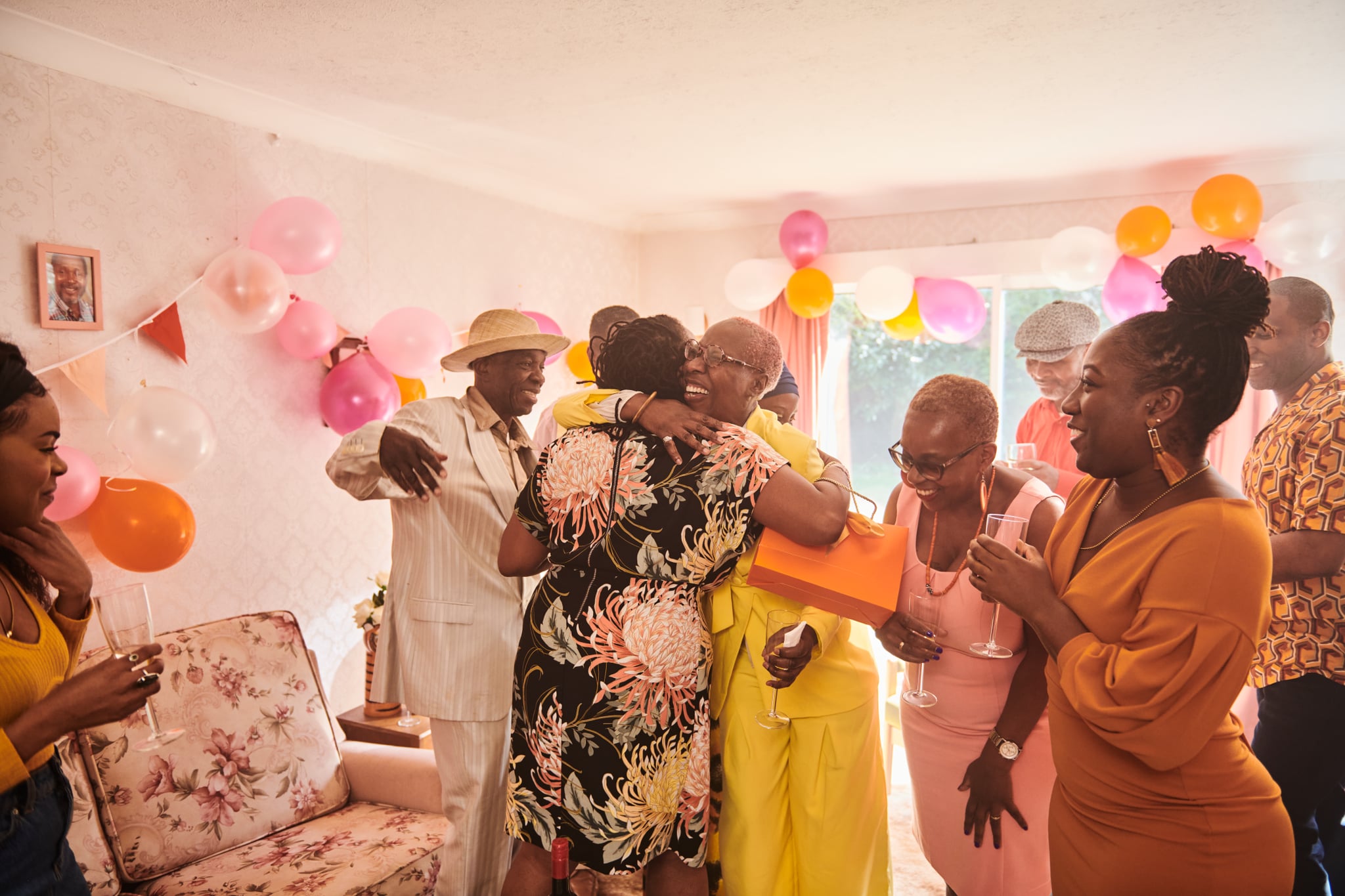What Is a Living Funeral?
Everything You Need to Know About Living Funerals: "It's a Party to Die For!"

Death is often a subject we want to avoid talking about; never mind planning for your own. But recently, Kris Hallenga – the founder of breast cancer charity CoppaFeel! – stared down the barrel of death when she planned her "FUNeral", a living funeral, which she attended.
Hallenga, who has been living with stage 4 breast cancer since 2009, posted widely about the day on social media. Knocking down the taboos surrounding death, she even invited celebrity friends including Fearne Cotton and Dawn French, with the latter delivering a eulogy dressed as her "Vicar Of Dibley" role, Geraldine Granger.
And whilst Hallenga's living funeral might be the catalyst for more people to face death head-on, living funerals aren't a new idea. Fans will remember the emotional eulogy for Augustus in "The Fault in Our Stars", in which the character says he wants to attend his own funeral. And as the trend for facing death with living funerals begins to surface on social media, so does the rise in interest among others who want to have their own.
Sam Skelton, a former staff member at a special educational needs school, told POPSUGAR that she is thinking of having one. "The decision to have one, while I am still well enough, will have to be made sooner rather than later," says Skelton, who has stage 4 lung, lymph, pleural, and spinal cancer. "I don't see the point in a living funeral if I am not well enough to really participate in it; probably in the next few months while I am still fully mobile."
She already has an idea of what would be involved on her special day, explaining: "I would have a ceremony led by a friend, music I choose, eulogies given by a few people, chances for others to either speak or write in a memories book...There would also be food and drink afterwards, and lots of hugging and proper saying goodbye."

Image Source: Sam Skelton
For the 57-year-old, who was diagnosed in 2021, a living funeral means the chance for everyone to gain closure. "When you have a terminal diagnosis one of the hardest things to deal with is the idea of the distress and grief you are causing all of those around you, your loved ones, your friends and family, even people you've known from years ago," says Skelton. "I want to be able to let go and forgive my body for failing, and forgive myself for abandoning everyone and everything I love."
So what actually is a living funeral, and how do you even start considering one? Jane Murray, the bereavement services lead at end-of-life charity Marie Curie – which is celebrating its 75th anniversary – speaks to POPSUGAR for everything you need to know about living funerals.
What Is a Living Funeral?
Unlike traditional funerals, which tend to fall on the grieving families and friends to plan for the purpose of providing closure and a good send-off for their deceased loved one, a living funeral is planned by the person who is expected to die, so that they can experience the love and celebrations that they would otherwise miss. "If you think of a wake, which typically takes place following a 'normal' funeral, where friends & families pay tribute to the deceased person by talking about their memories of them, and reading a eulogy, the same happens at a living funeral – only the person is present to hear those words and reminiscences themselves," says Murray. "It truly is a party to die for!"
When Would Someone Have a Living Funeral?
Typically, a living funeral would be planned when somebody knows they are going to die. "Some choose to have one shortly after they are diagnosed with a life-limiting illness whilst they are still 'well enough', others wait until they are nearer the end of their life and perhaps under hospice or palliative care," Murray explains. Whilst terminal diagnosis are tragic, one must also be aware that in some ways, those with the ability to plan a living funeral are afforded that luxury, compared to someone who dies suddenly, and leaves their loved ones without a 'goodbye'.
How Much Does a Living Funeral Cost?
There's no hard-and-fast rule for the price of living funerals – it all just depends on what you want on your special day, and where you host it. "This will vary depending on the type of celebration, anything from a tea to a proper party with a buffet and DJ, with room hire," says Murray.
How to Be a Living Funeral Guest
Much like traditional funerals, guests often don't know what to expect on the day, "and that in itself can stop them from attending," says Murray. In lieu of gifts, Murray suggests flowers, or a donation to a charity close to the person. "Having some words to say, or a special memory to share will be much appreciated. Even if it's emotional, 'I'm glad to see you to say goodbye in person… you have meant so much to me', or 'I appreciate you'" can mean the world to someone leaving earthside.
What Are the Pros of Living Funerals?
The pros are that the person can be present for the tributes others make about them. "They also have an opportunity to pay their own tributes to those gathered, and it may be the only time for the person to see all those they hold dear" says Murray. Despite living funerals being so candid about death, they can actually have a positive impact on the person in question's mental health. "As a society we can often shy away from sharing our true feelings with each other, and only do so after a person has died about what they meant to us," Murray explains. "How wonderful it is that the person is going to be there to hear those words for themselves? And be able to say those appreciations to others."
What Are the Cons of a Living Funeral?
Whilst ultimately, a living funeral should be down to the person in question to decide, "it can be uncomfortable" for the guests to pay tribute to them whilst they are present. "People can feel embarrassed and unsure on what to say," says Murray. "There may be a lot of different emotions."
If this story has affected you, you can speak to Marie Curie for practical and clinical information, and emotional support on 0800 090 2309 8am-6pm Monday to Friday, and 11am-5pm on Saturdays.






